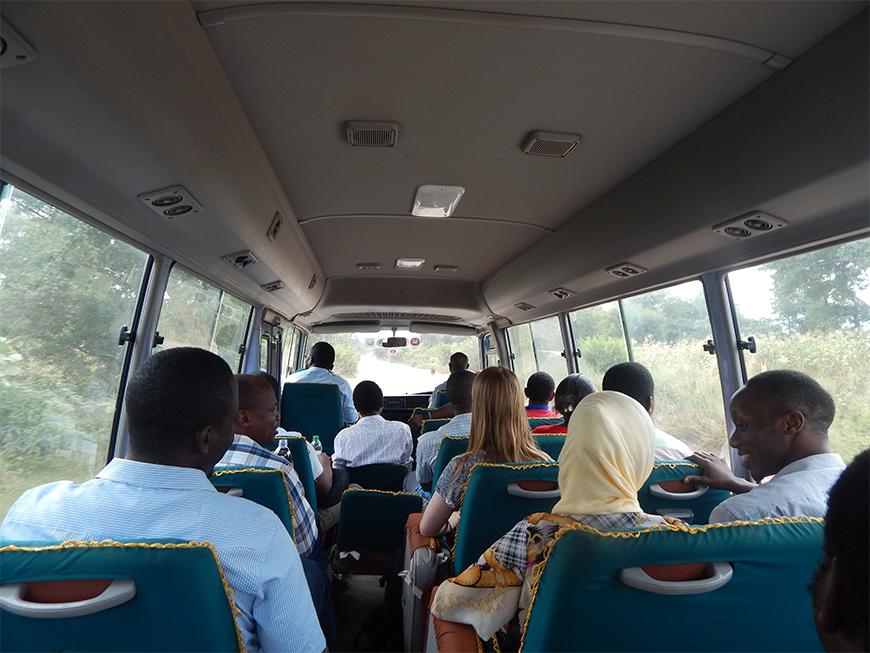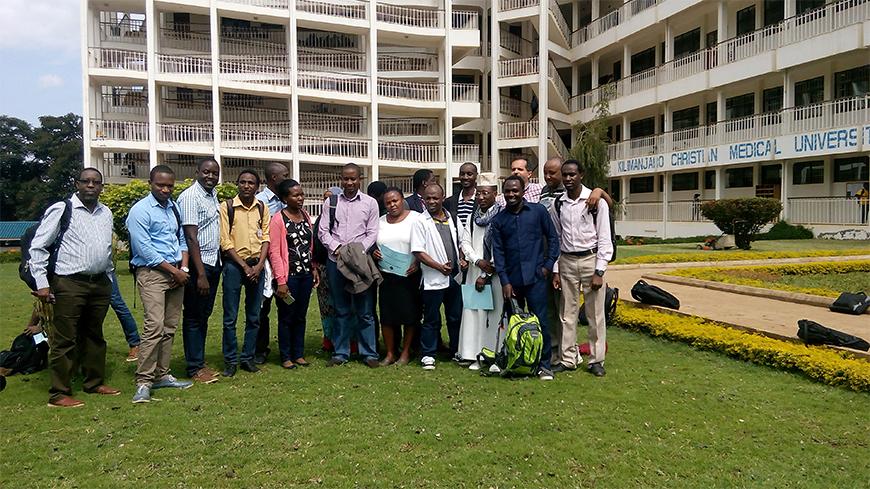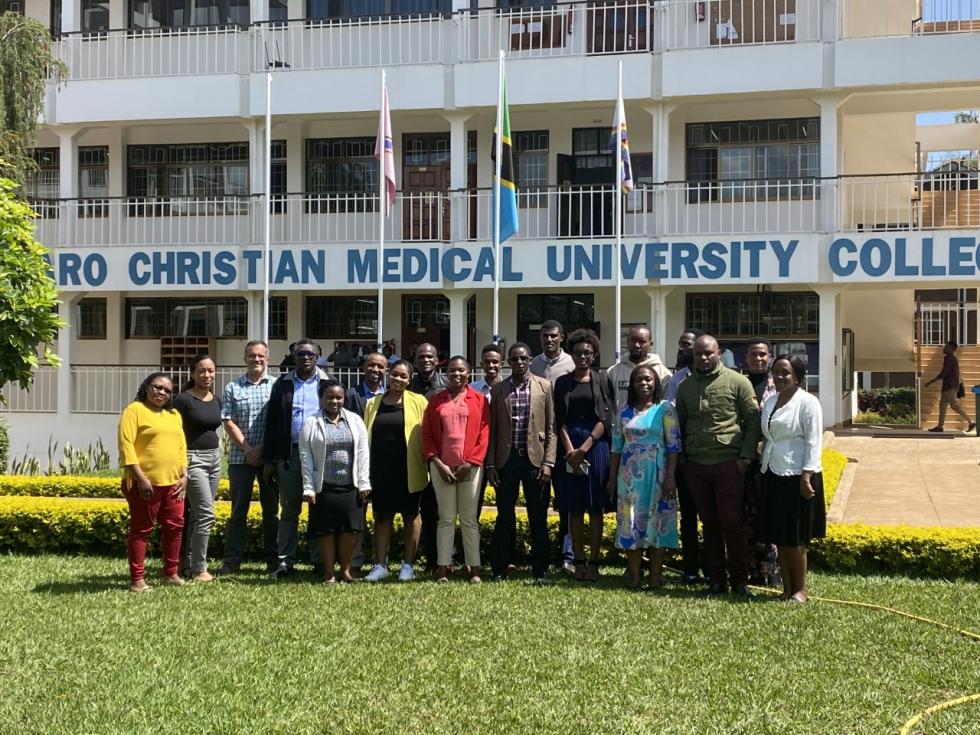Stephan Schmidt
Stephan Schmidt is interested in urban spatial patterns at different scales and across different geographies, the policy environment and institutional processes that generate or influence development patterns, and how these patterns, in turn, can produce more sustainable outcomes. Along with European colleagues, he is currently examining how regional plans and planning institutions have evolved to address climate risk. He is particularly interested in regional polycentricity and, with his students, is researching the impact of regional polycentric spatial structure on a number of different sustainability outcomes.
In addition, he is interested in urbanization patterns in sub-Saharan Africa. Along with African colleagues, he is researching the relationship between the urban morphology of rapidly urbanizing African cities and a broad range of climate and sustainability indicators.
Finally, he is also interested in the design and use of urban public space and has researched the consequences of privatizing public space provision as well as the American pedestrian mall. Schmidt has a master's degree in landscape architecture from the University of Washington and a Ph.D. in urban planning from Rutgers University.
"Fascinated with urban form and spatial patterns since I was a little kid, I became curious about the institutional, cultural, and socio-economic processes that produced very different urban and regional landscapes."
Academic Research/Specialty Areas
- Community-based planning and development
- International studies in planning
- Land use/spatial planning
- Planning history
- Regional science
- Suburban neighborhoods
- Sustainability
- Urbanism
- Visual representation
- Regional planning
- Land tenure systems
- Europe
- Sub-Saharan Africa
- GIS
- Planning institutions
Related Links
Related News
- Virtual CRP Graduate Open House for Admitted Students, Spring 2025
- CRP Faculty on Zwei auf Eins
- Virtual CRP Graduate Open House for Admitted Students, Spring 2024
- Multiple City Hubs, Dispersed Parks Keep Metro Areas Cooler
- How Pedestrian Malls Are Revitalizing Downtowns Around the World — and Helping Chicago's Loop (Again)
Classes (Selected)
- CRP 4080/5080 Introduction to GIS for PlannersGeographic Information Systems (GIS) have revolutionized the way we manage, analyze, and present spatial information. This course focuses on GIS in the social sciences. Many of the exercises and examples are based on planning issues, but the concepts can be applied to many other disciplines such as government, economics, natural resources, and sociology. Some of the issues covered include fundamentals of spatial analysis; overview of GIS technology and applications; designing a GIS project; gathering and analyzing data; and creating thematic maps.
- CRP 3840/5850 Green CitiesCities are centers of innovation, economic growth, social mobility, and they provide economies of scale in the provision of infrastructure and social services. However, cities are also sites of growing socio-economic inequalities and environmental problems. Do cities provide the opportunity to address environmental problems, or are they rather the source of pollution and environmental degradation? Are cities the appropriate scale at which to address environmental problems? Are these really urban issues or do cities just cluster resource use and problems so they are more visible? What role does the built or physical environment have in impacting our behavior and decision making? This course examines social, economic, cultural, political and environmental dimensions of sustainability and sustainable development in urban areas.
- CRP 5850 The Exit Project JourneyThis course addresses pertinent issues relative to planning. Topics vary each semester.
- CRP 6290 Advanced topics in GISThis course is designed to engage graduate level planning students in some more advanced topics using GIS methodology. Topics may vary from year to year, but in the past, the course has included an introduction to spatial statistics. Topics addressed include exploratory spatial data analysis, spatial autocorrelation, point pattern analysis, spatial interpolation techniques, spatial regression (including geographically weighted regression), and both spatial lag and spatial error models.
- CRP 3540/5540 Introduction to Environmental PlanningAddressing environmental problems and issues from a planning perspective is cross-sectoral (it covers multiple mediums and disciplines), comprehensive, contested (there are value differences attributed to the environment), and procedural (the process by which we reach decisions about the environment). Due to the broad and varied terrain of the material, this course will engage the students in both the substance and the process of environmental planning through a number of highly participatory activities. Topics to be addressed include the regulatory and policy making environment, environmental risk assessment, environmental equity and justice, and environmental planning tools, including among others, cost-benefit analysis, and environmental impact assessment.
Awards, Grants, and Fellowships (Selected)
- "Urban form and residential energy consumption in Accra, Ghana," Cornell Global Strategic Collaboration Award (2024)
- "Urban Morphology and Sustainable Outcomes in sub-Saharan Africa," Cornell Center for Social Sciences, Accelerated Research Grant (2024)
- "Mapping poverty, natural hazards, and critical ecosystem services for equitable and sustainable development," Cornell Atkinson Center for Sustainability Academic Venture Fund (2022)
- "The future of pandemic-related street closures," Urban Transformation Initiative (2021)
- "Regional Polycentrism and Metropolitan Structure in Germany," German Academic Exchange Service (2019)
Exhibitions and Presentations (Selected)
- Urban Spatial Patterns and Air Pollution--Evidence from German Regions, ACSP Conference, Seattle, Washington (2024)
- Understanding Perceptual Differences in Public Spaces through Online Reviews, ACSP Conference, Seattle, Washington, Fall 2024
- Place Attachment and Perceptions of Urbanization in Moshi, Tanzania, ACSP Conference, Seattle, Washington, Fall 2024
- Can Urban Form and Spatial Patterns Mitigate the Urban Heat Island Effect? Evidence from German Metropolitan Regions, ACSP Conference, Chicago, Illinois (2023)
- Can polycentric urban development simultaneously achieve both economic growth and regional equity? A multi-scale analysis of German regions, ACSP Conference, Toronto, Canada (2022)
- Toward Comparative Polycentricity Scores: Assessing Variations in Regional Delineation and Subcenter Identification, ACSP Conference, virtual (2021)
- Pandemic Related Street Closures and the Future of the Pedestrian Mall, ACSP Conference, virtual (2021)
Publications (Selected)
- Schmidt, S., Nuhu, S., Thomas, R., Li, W. (2024) "Place attachment, regional identity and perceptions of urbanization in Moshi, Tanzania", Habitat International, Vol. 150, 103132
- Li, W. and Schmidt, S. (2024) "The spatial-temporal evolution of urban development patterns in Chinese cities: Dynamics and interpretations", Growth and Change, 55(2)
- Schmidt, S., Li, W., "Can spatial patterns mitigate the urban heat island effect? Evidence from German metropolitan regions," forthcoming, Environment and Planning B: Urban Analytics and City Science.
- Li, W., Schmidt, S., & Siedentop, S. (2023). "Can polycentric urban development simultaneously achieve both economic growth and regional equity? A multi-scale analysis of German regions." Environment and Planning A: Economy and Space.
- Siedentop, S., Schmidt, S. and Dunlop, A. (2022) "Managing Urban Growth at the Regional level– a Review of the Literature," Raumforschung und Raumordnung | Spatial Research and Planning. 80(6) 659–677.






